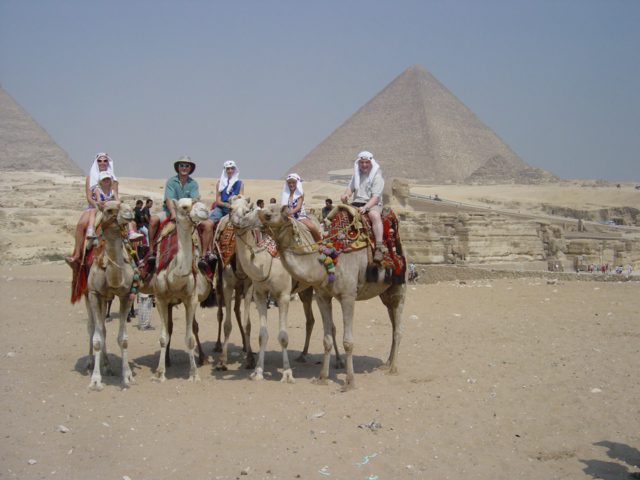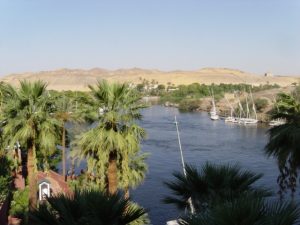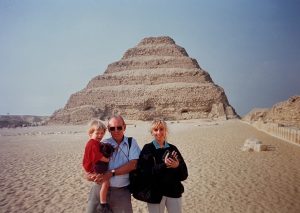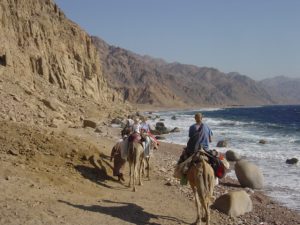🙂 INCREDIBLE history – feeling part of Ancient Egypt, sailing down the mighty Nile River and amazing diving on a desert diving safari on camel to the blue hole – Superb!
🙁 Constant harassment and requests for ‘baksheesh’. Disgusting longdrop toilets.
Currency: Egyptian Pound
THREE things that we did not know about Egypt:
- Cleopatra was not Egyptian – while she was born in Alexandria, Cleopatra was actually part of a long line of Greek Macedonians.
- King Tut: Surprisingly little is known about the life of the boy pharaoh Tutankhamen, but some historians believe they know how he died. Scans of the young king’s body show that he was embalmed without his heart or his chest wall. This drastic departure from traditional Egyptian burial practice suggests that he may have suffered a horrific injury prior to his death. According to a handful of Egyptologists, one of the most likely causes for this wound would have been a bite from a hippopotamus. Evidence indicates that the Egyptians hunted the beasts for sport, and statues found in King Tut’s tomb even depict him in the act of throwing a harpoon. DNA suggests that he was beset by malaria and a bone disorder – his health most likely compromised by his incestuous origins (Ancient Egyptians believed that incest kept the royal lines pure). Tutankhamun became king at the age of 10 in 1333BC and ruled just for nine years.
- The Pyramids were not built by slaves: They were in fact from Egyptian families who were very highly respected for their work and if they did die during the construction, they were honoured by being buried in tombs near the sacred pyramids. These tombs were the ones recently discovered that allowed scientists this new insight into the history of the formidable structures.

Go To: Cairo
Go to: Aswan
Go to: Abu Simbel
Go to: Nile Cruise
Go to: Luxor
Go to: Dahab




